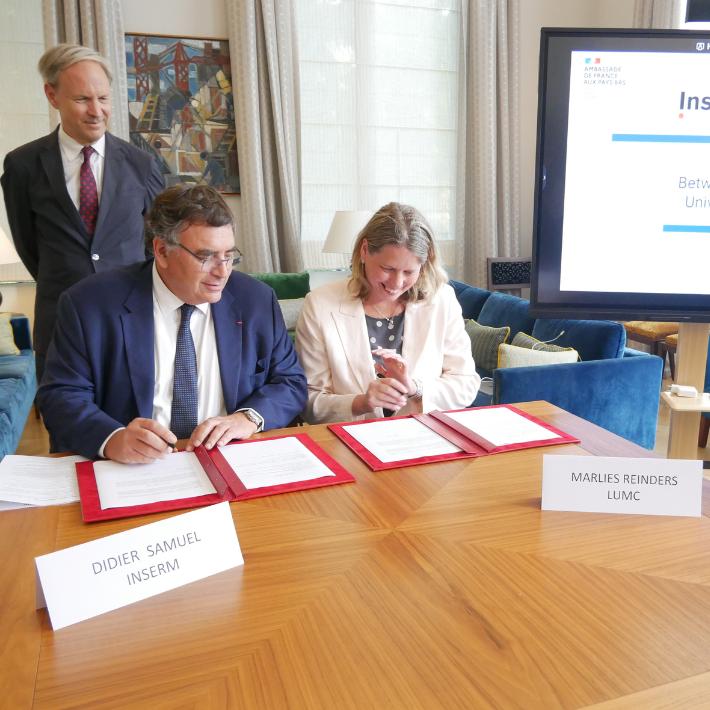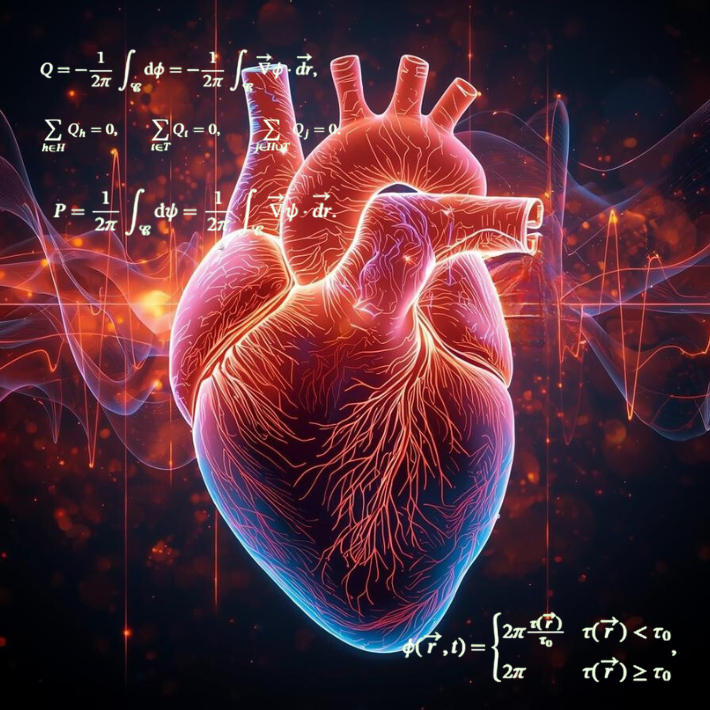LUMC and French research institute Inserm join forces for innovation in regenerative medicine
&width=710&height=710)
International Joint Lab
On July 2, LUMC Dean Marlies Reinders signed an International Joint Lab agreement with Inserm. This initiative, developed by Inserm, aims to give long-term, successful international collaborations greater visibility and tailored support.
The signing took place at the French residence in The Hague, where Inserm President Didier Samuel and Dutch healthcare partners gathered at the invitation of the French Ambassador François Alabrune.
Reinders expressed her enthusiasm: “Collaboration at regional, national, and international levels is essential for LUMC’s success. Only by working together with our partners can we truly innovate healthcare. I am therefore pleased to sign this agreement and strengthen our ties with Inserm.”
Early Diagnosis and Monitoring of Treatment Effectiveness
The partnership enables further development of advanced imaging technologies that can map the body’s small blood vessels in great detail. The International Joint Lab is a collaboration between the team of Mickaël Tanter/Mathieu Pernot from the Physics for Medicine department in Paris (Inserm) and Franck Lebrin/Ton Rabelink from the Department of Internal Medicine at LUMC and builds on previous successes.
Lebrin, who has worked at LUMC for eight years, is part of the Inserm Abroad Network – a group of nine top researchers worldwide promoting international scientific collaboration.
Lebrin: “In recent years, The Institute of Physics for Medicine Paris-Inserm has introduced groundbreaking ultrasound technologies capable of monitoring non-invasively the whole organ vasculature and function down to microscopic resolution.Thanks to the collaboration agreement between INSERM and LUMC, we are now implementing these technologies at the LUMC to develop methods in preclinical models of microvascular diseases and perform a first in-human study.
Beyond opening a complete paradigm shift in clinical imaging, these technologies will allow us to diagnose blood vessel dysfunction at an early stage and study the effects of new treatments on these diseases. In the International Joint Lab SPRINT-MH, we will further develop this technologies for use in the field of regenerative medicine – one of the spearheads and areas of expertise of the LUMC.”
French–Dutch Collaboration
The reception also highlighted broader scientific collaboration between France and the Netherlands in medical research. In addition to the International Joint Lab agreement, two more cooperation agreements were signed, including a Memorandum of Understanding between Regenerative Medicine Crossing Borders (RegMed XB) and Inserm. With this agreement, both organizations express their intent to enhance international collaboration in the field of regenerative medicine. The LUMC is part of RegMed XB.

&width=710&height=710)
&width=710&height=710)
&width=710&height=710)